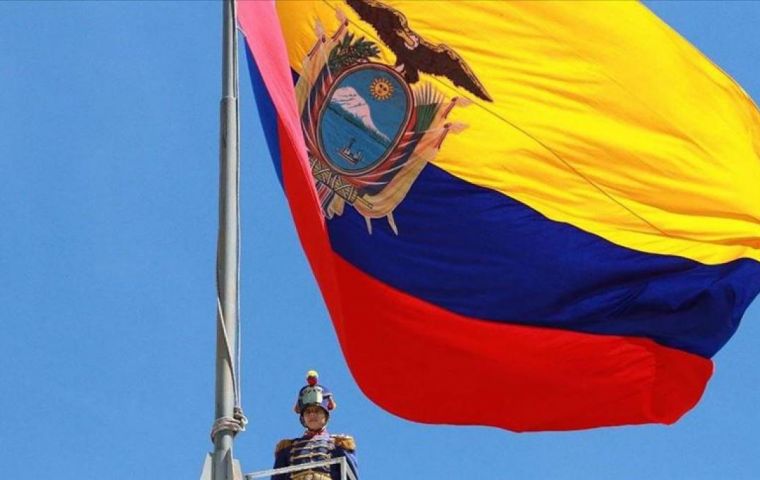MercoPress. South Atlantic News Agency
Ecuador's US$ 17,4bn debt restructuring plan faces divided bondholders
 Ecuador's proposal already has the backing of one group of creditors, holding around half of the bonds including AllianceBernstein, Ashmore and BlackRock.
Ecuador's proposal already has the backing of one group of creditors, holding around half of the bonds including AllianceBernstein, Ashmore and BlackRock. Ecuador’s government will likely have to sweeten its offer to creditors in order to reach an agreement to restructure US$ 17.4 billion in bonds, say analysts. The government’s proposal already has the backing of one group of creditors, holding around half of the bonds and including AllianceBernstein, Ashmore and BlackRock.
However another group of bondholders have said the terms must be improved, though it declined to say what percentage of creditors it counted among its members.
The government most likely will need to negotiate the terms of the initial offer somewhat to entice the two-thirds aggregate majority of bondholders, or 75% in the case of the 2024 bonds, to accept the proposal, said Tiago Severo, vice president of Latin America economic research at Goldman Sachs.
That would trigger collective action clauses, designed to help push through an orderly debt restructuring by requiring only a majority of creditors to agree to change payment terms or restructuring.
“My sense is that the scope for adjustment is not large given the challenging fiscal and macro situation,” Severo said in emailed comments. “Since average coupons of the proposed exchange instruments are already reasonable, improvements (if any) would most likely come through a slightly smaller principal haircut and/or a slightly more frontloaded payment schedule.”
Under the current deal, ten existing bonds maturing between 2022 and 2030 would be swapped for three bonds due in 2030, 2035, and 2040, with a nominal 9.2% haircut on the face value of the bonds, trimming US$ 1.7bn off the principal due.
“Whether or not the current deal is eventually accepted, the key point is that we don’t think that the deal currently on the table would be enough for Ecuador to achieve debt sustainability over the long-run,” Quinn Markwith at Capital Economics wrote in a note.
The fallout from COVID-19 and the oil price shock saw debt-to-GDP rise to 64.6%, according to IMF data.
The government in April reached a deal with the bondholders to delay interest payments through August, as the oil plunge and coronavirus weighed on public finances.
Quito last week said it planned to formally launch consent solicitation over the debt revamp in the short term. Reaching a deal with creditors by August was a realistic timeline, said a source familiar with the thinking of creditors.
“There is an urgency about dealing with the situation - the crisis on the ground is quite severe so removing the uncertainty is quite important,” the source said.
“Also, there are elections coming up next year in Ecuador and if the government doesn’t deal responsibly with the debt and reach an agreement with the IMF on the back of the restructuring with the private sector, that could create real political chaos in the country in the run up to the election.”




Top Comments
Disclaimer & comment rulesCommenting for this story is now closed.
If you have a Facebook account, become a fan and comment on our Facebook Page!